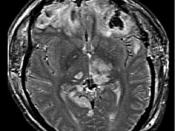Top of Form
The Psychological Effects of Employment After Traumatic Brain Injury Objective and Subjective IndicatorsAuthor: Tsaousides, Theodore; Ashman, Teresa Seter, Colette Source: Rehabilitation Psychology November 2008 Vol. 53, No. 4, 456-463 ISSN: 0090-5550 Number: rep534456 Copyright: 2008 American Psychological Association � Gainful employment is an area of significant loss for individuals with traumatic brain injury (TBI). Reported rates of unemployment for individuals following TBI range between 18% and 88% (Bushnik, Hanks, Kreutzer, & Rosenthal, 2003; O'Neill et al., 1998), rendering TBI disruptive to an individual's career trajectory. The physical, cognitive, and/or emotional problems resulting from TBI may prevent individuals from returning to work entirely or may reduce their capacity to return to work full time or to positions commensurate with their preinjury skill level (Franulic, Carbonell, Pinto, & Sepulveda, 2004). Return to work is considered a cornerstone of TBI rehabilitation, and it has often been used as a critical outcome measure of successful rehabilitation (Levack, McPherson, & McNaughton, 2004; Malec & Basford, 1996). The literature on gainful employment after TBI has mainly focused on identifying factors that predict return to work (which individuals go back to work) or has more recently included factors that affect the stability of postinjury employment (which individuals stay on the job after returning to work). Severity of injury, type and degree of impairment, education level, prior work history, age at the time of the injury, self-awareness and acceptance of the disability, and vocational rehabilitation have been identified as factors contributing to return to work (Franulic et al., 2004; Ownsworth & McKenna, 2004; Wehman, Targett, West, & Kregel, 2005). Age, preinjury income, preinjury job benefits, and neuropsychological functioning postinjury have been reported as factors contributing to post-TBI employment stability (Machamer, Temkin, Fraser, Doctor, & Dikmen, 2005). In addition to identifying the predictors of post-TBI... |


